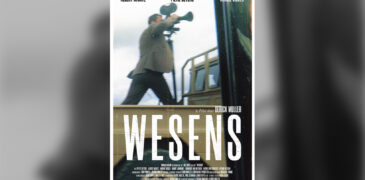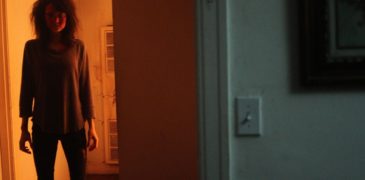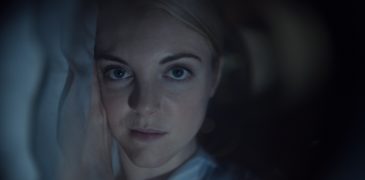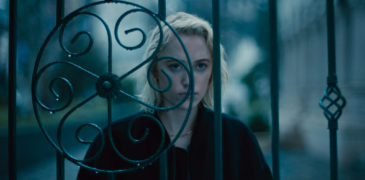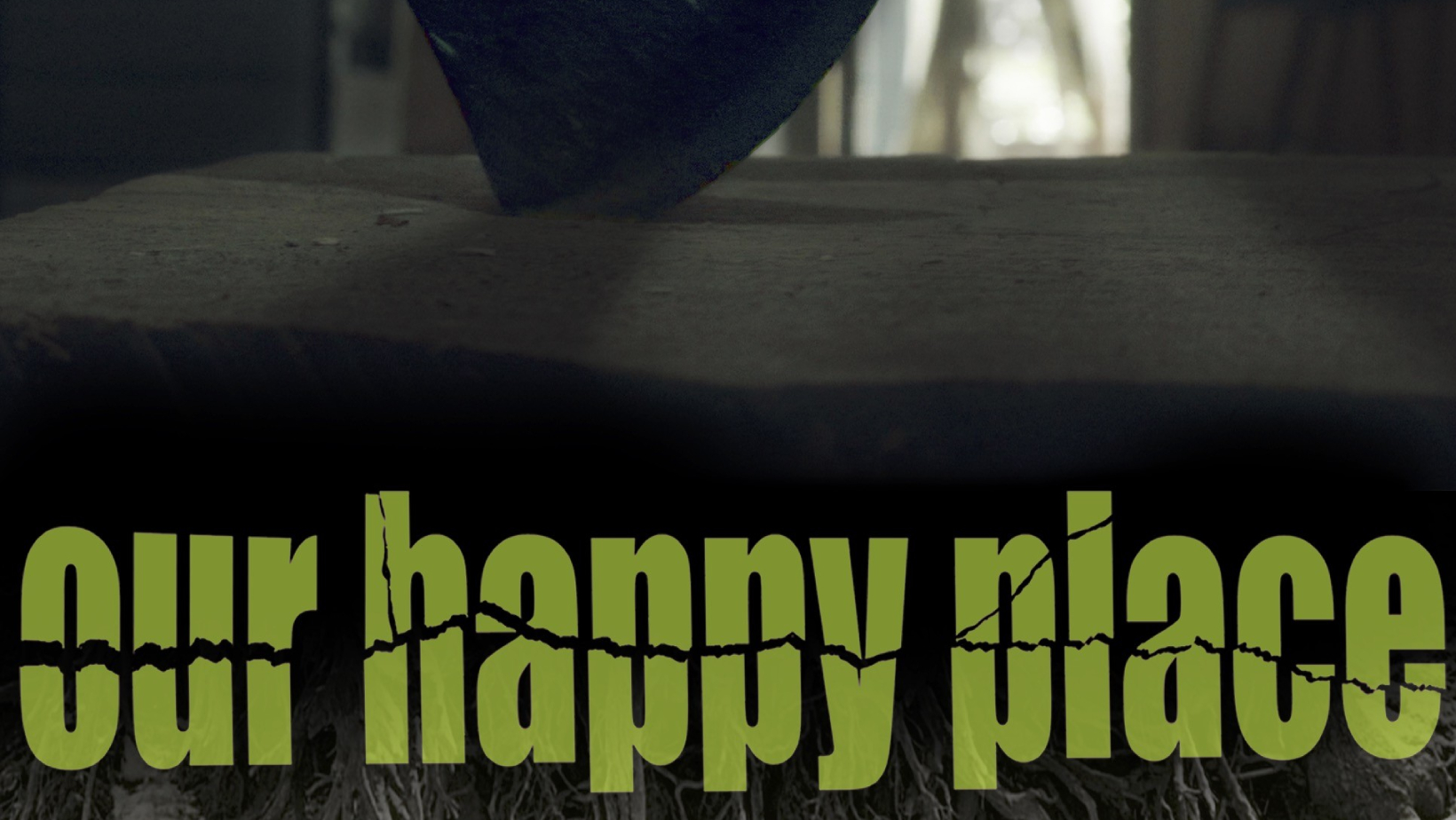
Our Happy Place is a gritty psychological thriller slash modern murder mystery written and directed by Paul Bickel. The film weaves in worries that could only be understood by major audiences in the post-COVID era.
Raya (Raya Miles) plays a woman experiencing extreme isolation and loss of meaning within her own world. Now full-time carer to a seemingly paralysed husband in a beautiful house in the middle of nowhere, Raya’s anxieties about her life have begun to manifest as very real and potentially dangerous issues.

Our Happy Place begins, and is constantly interspersed by, images of idealised holidays; beautiful couples posing while laughing, exploring and having great adventures. But while these perfect scenes play out, a darker note strikes – flashes of something not quite right about that big outdoors…
Raya wakes up in the woods, somewhere. She’s covered in mud and scratches, her feet are bleeding, and she clearly has no idea where she is. This is just one of the first days Raya will wake up in the wilderness over the course of this film, and working out why is the only way she knows to make it stop.
Sleepwalking aside, Raya’s story is scarily familiar for anyone who lived through the COVID pandemic, or has had an illness or disease tragically strike a family member. An idyllic life with a handsome husband, dinner parties with friends, the freedom to live where you choose – she loses all of these in almost no time at all. She can’t leave the house for any extended period of time, and every day is the same toil just to get by – get up, put on pyjamas, make the porridge, feed your husband…

And of course, throughout it all, she has no one to talk with. While the film never states what happened to Paul, he does appear to be almost completely paralysed and needs an oxygen mask most of the time – he’s certainly not capable of conversation. She has at least one good friend with whom she video chats, but Amy (Tracie Thoms) is too wrapped up in her own life drama to really listen.
As Raya’s dreams continue and intensify, she does what any sensible horror protagonist would do: she starts problem-solving, going to bed fully clothed, with duct taped-on boots and gloves. But as she sleeps less and less, the dreams only get more vivid; at first, she’s running through the woods from a mystery assailant, being stalked, and encountering women she’s seen on missing posters. Eventually, her hunter takes the form of her husband, rising from his sick bed to chase her down and bring an axe down on her again and again.
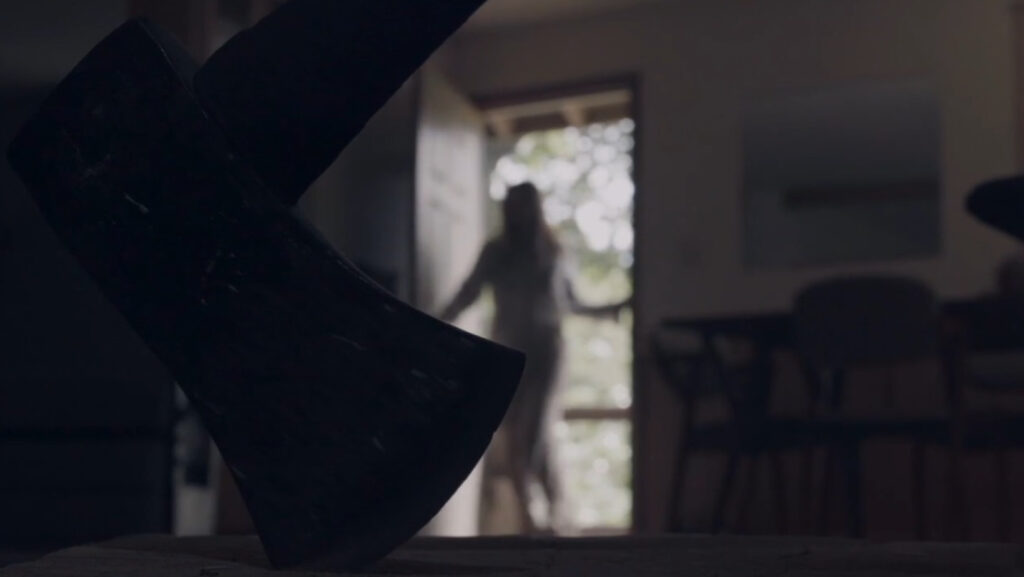
Director and actor Paul Bickel could have made an entirely rounded film using the conventions of horror to talk about isolation, and how it feels to lose your life and grieve for it. Many of us will remember how it felt to be trapped and how much we wanted things to go back to how they were before.
But there isn’t just metaphorical death in this story; what seem like artful metaphors for the death of a previous life become memories and visions of more literal deaths. The fact that Paul had actually been axe-murdering random women and stealing their jewellery before burying their corpses in shallow graves feels both obvious and surprising, but a further twist right at the end of the film added an extra mystery that didn’t feel entirely necessary.

Altogether, Our Happy Place is a well thought-through psychological horror with a twist of serial killer thriller thrown in. It’s hard to say how much of the film’s style choices were deliberate, and how many were a necessary result of COVID-restrictions, but the shaky, homemade camera feel of the film did help to elicit the warm cosy feelings that Bickel needed to shatter.

Our Happy Place (2024) is premiering internationally at Raindance Film Festival this June
More Film Reviews
In 1967, four South African Republican Intelligence Agents respond to a mysterious object crash landing on a farm, playing out to offer South Africa’s first found footage horror movie. They… Caged Heat is a 1974 American women-in-prison exploitation film, written and directed by Jonathan Demme and released under Roger Corman’s New World Pictures. Though the film would be his directorial… A young actress gives birth to a stillborn baby girl, but an accident in the morgue brings the baby back to life… with electrokinetic powers. The child is abducted by… The breakdown of friendships into the realm of horror has always been a theme fascinating me; the amount of paranoia needed to turn an object of comfort into terror being… Chloe Okuno’s Watcher, which delighted lucky Sundance Festival-goers earlier this year, is a step forward for the horror genre and doubles as a neat entry point (for those curious) into the… Whilst Wong is a very common name in Singapore and China, Cleopatra certainly isn’t! The name actually reveals the main inspiration for this film: the blaxploitation heroine – CIA agent…Wesens (2020) Film Review – A Subversive Mystery From The Afrikaans Sky
Caged Heat (1974) Film review – I Know Why the Caged Bird Sings
Reborn (2018) Film Review: A Frustrating Miss
Bleed With Me Film Review – Lets Make A Blood Pact
Watcher (2022) Movie Review – A Smart Fish-Out-Of-Water Paranoid Thriller
They Call Her Cleopatra Wong (1978) Film Review – Singapore’s First and Only Female Action Hero
Jenny is a creative copywriter living just outside of Liverpool who loves horror, board games, comics, video games and industrial metal.

